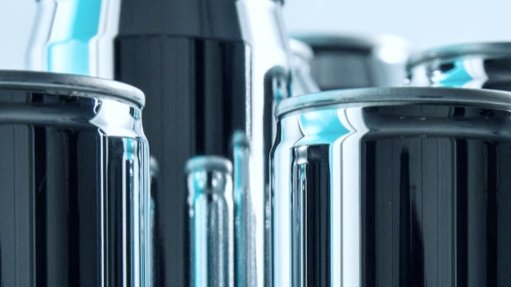Old-timers who refuse to step down
There is more in common between Cameroon and Cote d’Ivoire than their shared history as former French colonies: they are led by elderly men who just don’t want to leave power, and both secured new mandates in elections last month – raising questions about the price citizens pay for long-tenured leadership.
Once upon a time, Cote d’Ivoire’s Alassane Ouattara – a former international bureaucrat who spent a non-consecutive 14 years at the International Monetary Fund and a combined 16 years at the Central Bank of West African States – won the sympathy of many who felt he had been unfairly blocked from the Presidency because his father was born in Burkina Faso. He became a central figure in the Ivoirité debate, a bitter national dispute over who was truly Ivorian that emerged in the late 1990s and ended in the late 2000s, finally clearing the way for him to run in – and win – the 2010 Presidential election.
A year into his second term – which was supposed to be the last – he pushed through a constitutional revision which his camp interpreted as resetting his term count, a view the Constitutional Court sided with, paving the way for him to contest in 2020 and again last month. When he eventually leaves office in 2030, he will have been at the helm for two decades.
Ouattara may have presided over GDP growth of 6% to 7% over many years, infrastructure investments that have modernised parts of the country, and improvements in governance indicators, which now rank above regional averages, but it cannot be denied his leadership has had significant flaws.
An oft-cited criticism is that he has prioritised growth and big-ticket investments over deep social transformation, with the poverty rate, although declining, still at an unpalatable 37.5%, and many northern and eastern rural regions remaining underserved.
What’s more, corruption is rife, unemployment is at stratospheric levels, with more than 80% of jobs in the informal sector, while public debt rose from 24% of GDP in 2012 to 60% in 2024 – a level Ouattara’s detractors argue increases long-term risk and may crowd out social spending. Yet another smear in his copybook is the increasing centralisation of political power, with limited genuine competition, which raises concerns about the long-term health of Ivorian democracy.
It is plausible that a more reformist leader could have focused more on building formal-sector jobs, not just infrastructure, balanced debt-financed investment with social programmes to reduce the risk of over- leveraging, and fostered political openness instead of consolidating power.
And Cameroon’s Paul Biya? After a seven- year stint as Prime Minister, he became President in 1982, a position he has held ever since and will continue to hold until 2032, when his current term ends.
Cameroon has not fared particularly well under him, with more than 55% of its citizens living in poverty, despite the country’s significant timber, oil and gas endowments. Key infrastructure is crumbling, and governance indicators have deteriorated since 2015, with 42% of respondents in a recent survey noting that they had paid a bribe in the previous year, almost double the sub-Saharan African average.
Available credible evidence suggests that corruption, mismanagement, and institutional decay have been systemic during Biya’s long rule, significantly limiting poverty reduction and inclusive growth. He should bear heavy responsibility for failing to translate the country’s natural wealth into broad-based development. But the fellow, who blew 92 candles on his last birthday cake, could not resist the temptation of another seven years in office when elections rolled around in October.
Now Uganda’s Yoweri Museveni, who became leader in 1986 on the back of an armed resistance movement launched to topple a dictatorship in the country but started his first term under a multiparty system in 1996, will be seeking another term next year, his seventh. This has an almost poetic resonance, given that Museveni means “the seventh one” in his language.
But seriously, here is a man who, despite government claims that he has presided over declines in poverty and a recovery in growth after past shocks – with GDP expansion of 6.4% expected this year – has not covered himself in glory.
Another old-timer who is hell-bent on clinging to power is Emmerson Mnangagwa across the Limpopo, whose party recently passed a resolution to extend his term beyond its constitutional end in 2028 by two years. The less said about his performance as CEO of Zimbabwe Inc, the better.
Article Enquiry
Email Article
Save Article
Feedback
To advertise email advertising@creamermedia.co.za or click here
Press Office
Announcements
What's On
Subscribe to improve your user experience...
Option 1 (equivalent of R125 a month):
Receive a weekly copy of Creamer Media's Engineering News & Mining Weekly magazine
(print copy for those in South Africa and e-magazine for those outside of South Africa)
Receive daily email newsletters
Access to full search results
Access archive of magazine back copies
Access to Projects in Progress
Access to ONE Research Report of your choice in PDF format
Option 2 (equivalent of R375 a month):
All benefits from Option 1
PLUS
Access to Creamer Media's Research Channel Africa for ALL Research Reports, in PDF format, on various industrial and mining sectors
including Electricity; Water; Energy Transition; Hydrogen; Roads, Rail and Ports; Coal; Gold; Platinum; Battery Metals; etc.
Already a subscriber?
Forgotten your password?
Receive weekly copy of Creamer Media's Engineering News & Mining Weekly magazine (print copy for those in South Africa and e-magazine for those outside of South Africa)
➕
Recieve daily email newsletters
➕
Access to full search results
➕
Access archive of magazine back copies
➕
Access to Projects in Progress
➕
Access to ONE Research Report of your choice in PDF format
RESEARCH CHANNEL AFRICA
R4500 (equivalent of R375 a month)
SUBSCRIBEAll benefits from Option 1
➕
Access to Creamer Media's Research Channel Africa for ALL Research Reports on various industrial and mining sectors, in PDF format, including on:
Electricity
➕
Water
➕
Energy Transition
➕
Hydrogen
➕
Roads, Rail and Ports
➕
Coal
➕
Gold
➕
Platinum
➕
Battery Metals
➕
etc.
Receive all benefits from Option 1 or Option 2 delivered to numerous people at your company
➕
Multiple User names and Passwords for simultaneous log-ins
➕
Intranet integration access to all in your organisation

















